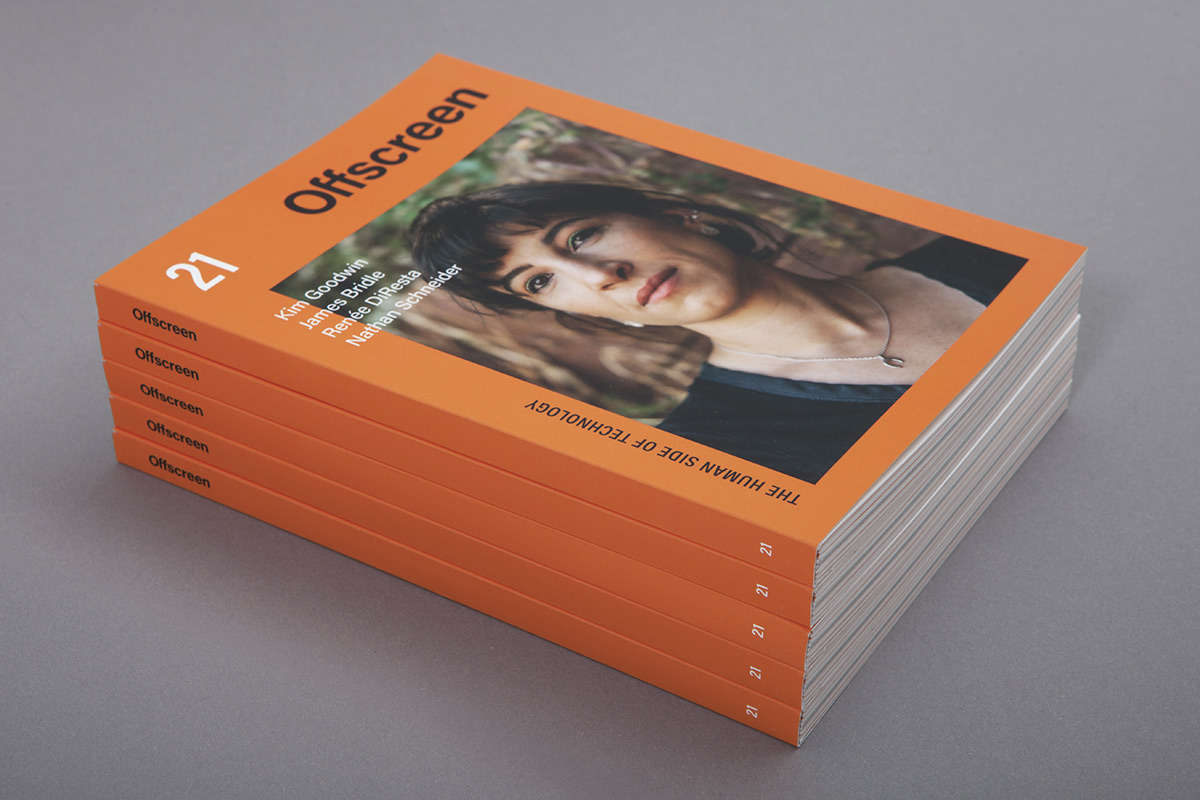This essay by Lisa Sanchez first appeared in Offscreen Issue 17.
I’m standing in the pristine lobby of a tech company. Elevator bells are dinging, up and down. Young, beautiful people slip past me on either side, clutching silver MacBooks. My heart is racing, though it shouldn’t be. I’m the interviewer, not the candidate! Still, I get nervous every time, no matter which side of the table I’m on. I have no idea what my candidate looks like, but I find him in the small crowd eventually. After confirming his name, I extend my slightly sweaty hand.
“Hi! I’m Lisa,” I say, willing myself to exude confidence. I'm reminded of recent feedback: Speak up! Look confident!
“Who?” he asks, bewildered.
“Lisa,” I say, as my sad little tent of internal confidence collapses.
“Who am I meeting with?” he says.
“Me?”
“I mean the hiring manager.”
“That’s me.” My voice contracts to a squeak. Fortunately the lobby crowd has dispersed.
“How’d you get that job?” he asks. He is older and taller than me, with a salt and pepper beard. His voice booms from above.
I hear my response like an echo from far away. Something about an acquisition. It sounds like an apology. Then I guide him toward the café, offer him something to drink, and politely conduct our interview. Part way through, I have to remind myself that I am not the one who’s supposed to be proving myself in this conversation.
His voice is one among many others that regularly question my presence, at work and in the world. I’m often asked about my accent (though I’m sure I don’t have one), my olive skin, and my last name. To the question where I’m from, ‘Pennsylvania’ rarely suffices as an answer. I’ve been informed, usually indirectly or playfully, that my apparent age, quiet voice, small stature, femininity, and curly hair do not add up to the term ‘boss’.
Even years later, I’m still reflecting on his question. Stripped of its condescending tone, it’s a valid question, and one I'm asking myself: how did I get here, and why does it matter that I am? The answer begins with how far I had to come to get here.
I grew up in a rust belt town of three thousand in Pennsylvania, born to one white parent, one Puerto Rican. My dad did seasonal field work, planting trees and pruning vines. Later he worked in manufacturing. I spent most of my life feeling different and trying to make it seem like I wasn’t – among peers with more privilege, among friends with ‘matching’ parents, and starting in graduate school, mostly among men. It wasn’t until recently that I began to embrace my otherness as a competitive advantage. I don’t just look different, I am different. I see things differently than the majority of my peers in technology, and that different perspective has remarkable value.
Sometimes I think of myself as a blind spot detector. It’s an exhausting role to play, but I can hear one more way in which a turn of phrase may be interpreted, see one more possibility for how a team might proceed, add one more lens through which to evaluate a candidate for a job.
Did you know that female drivers are 47% more likely to die in a car accident? According to a study by the University of Virginia, this is partly due to the fact that vehicle safety features are largely designed for and tested on male bodies. It’s no coincidence that women hold only about a quarter of the automotive jobs in the US, and make up less than 17% of the industry’s leadership. The car industry badly needs more blind spot detectors.
The percentage of women in technology is similar. Our efforts to improve diversity in this industry are often focused on incremental change. One more woman at the table or one more percentage point of people of colour in technical roles is considered a win. We don’t approach our product or business objectives in such an anæmic way. When it comes to diversity, what would radical transformation look like?
How might we create workplaces filled with so many different kinds of people that there would be no ‘type’ – either in particular roles, or in the company as a whole? How might we create workplaces where there is no qualified person who ‘doesn’t belong’? What possibilities might we unlock if all members of a team were remarkably different from one another? A team like that would not require a blind spot detector: it would already be equipped with powerful 360-degree vision.
Enjoyed this essay? Support indie publishing and buy available issues of Offscreen for more thought-provoking reads in beautiful print.



